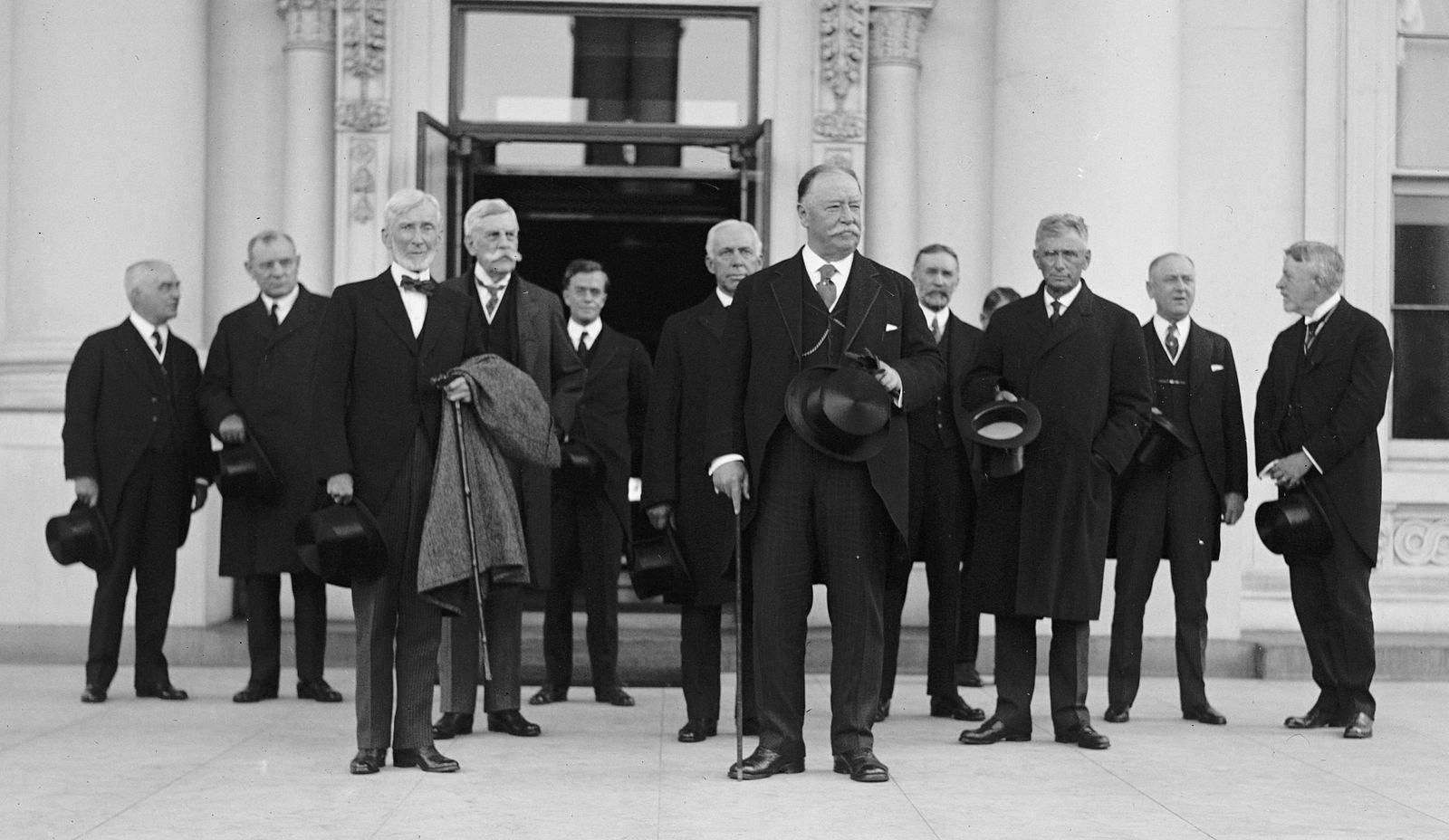The Judicial Branch
In Summary
“The judicial power of the United States is extended to all cases arising under the Constitution. Could it be the intention of those who gave this power to say that, in using it, the Constitution should not be looked into? That a case arising under the Constitution should be decided without examining the instrument under which it arises? This is too extravagant to be maintained. In some cases then, the Constitution must be looked into by the judges. And if they can open it at all, what part of it are they forbidden to read or to obey?”
Chief Justice John Marshall
Marbury v. Madison (1803)
The judicial branch of the U.S. government is established by Article III of the Constitution, coming after the legislative and executive branches. Its third-place position could imply it is less important or less dangerous than the other branches, but some of the documents below challenge that assumption. The proper role of the Supreme Court has been contested through history and is still debated today. Learn more about the judicial branch on the Supreme Court Discovery Page.
JMC Resources

Constitutional Powers and Debates
In Federalist Paper, No. 78, Publius argues that “the judiciary is beyond comparison the weakest of the three departments of power.” Anti-Federalists like Federal Farmer and Brutus express concerns about the independence of the Supreme Court and the lifetime appointments of Justices, which they fear will quickly lead to an abuse of power by the Court.
Federalist Papers, No. 78, 1788
An early landmark decision by the Supreme Court, Marbury v. Madison (1803) remains one of the most consequential decisions in American history. The decision, written by Chief Justice John Marshall, established the principle of judicial review, which allows the Court to strike down laws deemed unconstitutional.

Who should interpret the Constitution?
In Marbury v. Madison (1803), Chief Justice Marshall states “it is emphatically the province and duty of the Judicial Department to say what the law is.” In other words, the Supreme Court is solely responsible for interpreting the Constitution. Thomas Jefferson, Andrew Jackson, and Abraham Lincoln suggest otherwise in the texts below. Jefferson entertains an argument that the legislative branch has sole power to interpret the Constitution; Jackson claims all three branches have an equal right to interpret it; and Lincoln suggests there is room for competing interpretations of the Constitution, to prevent an effective dictatorship by the “eminent tribunal.”
Thomas Jefferson letter to William H. Torrance, 1815
Andrew Jackson, Veto Message Regarding the Bank of the United States, 1832
Abraham Lincoln’s First Inaugural Address, 1861

The Supreme Court as Anti-Republican
The Justices on the Supreme Court are appointed by the President and serve for life under the condition of good behavior. The unelected, permanent Justices embody inherently anti-democratic and anti-republican principles. Thomas Jefferson criticizes these aspects of the Court in these four letters, all written after Jefferson’s retirement from public service.
Thomas Jefferson letter to Samuel Kercheval, 1816
Thomas Jefferson letter to William Charles Jarvis, 1820
Thomas Jefferson letter to James Pleasants, 1821

Originalism v. Living Constitutionalism
There are two primary theories for Constitutional interpretation today: originalism and living constitutionalism. The speeches below offer defenses and criticisms of both perspectives. Justice Brennan, a proponent of living constitutionalism, explains how he understands the Constitution as an “adaptable” document and why originalism is impractical. Justice Scalia, an originalist, outlines why he believes originalism is necessary to upholding the Constitution and why living constitutionalism threatens the democratic nature of American government.
William Brennan, “The Constitution of the United States: Contemporary Ratification,” 1985
Antonin Scalia, “On Constitutional Interpretation the Old-Fashioned Way,” 2005
Other Resources
The Origin of the Judiciary
Teaching American History
John Marshall, Marbury v. Madison, and Judicial Review
NEH EDSITEment!